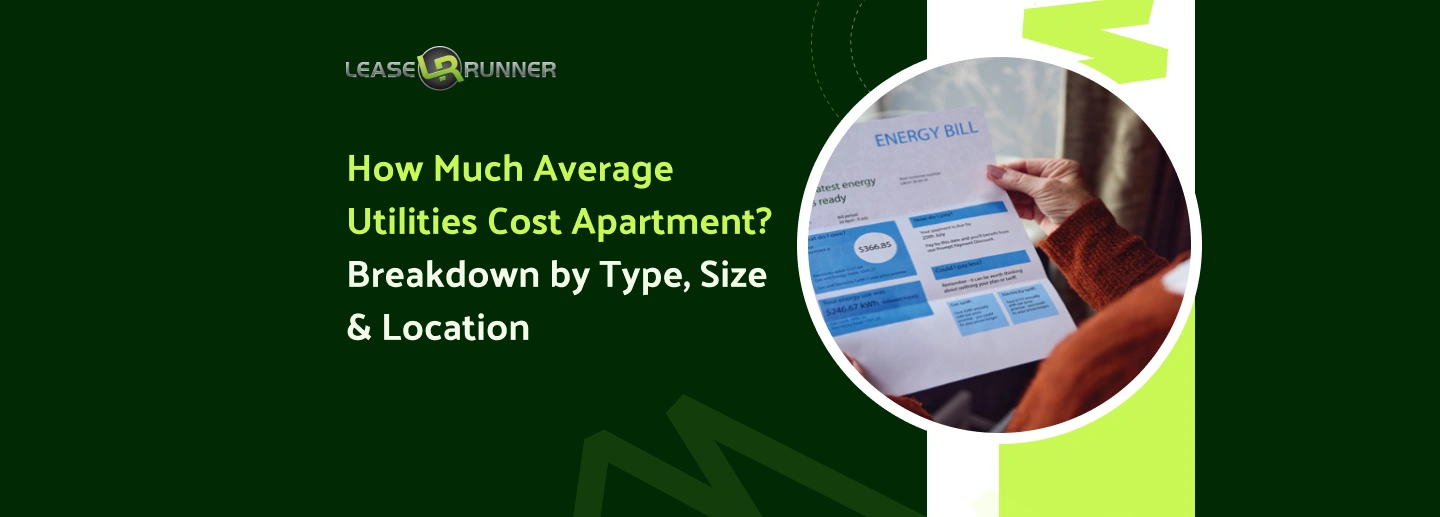Renting to tenants with bad credit can feel risky. But landlords can lower this risk with smart steps. Look beyond detailed credit checklists or scores; a landlord should also check their job history, past rent payments, and references.
If you ask, what a bad credit score is for renting or how to handle bad credit when renting a house, this guide helps.
We will suggest every tip for using a guarantor with a good credit score, or ask for an explanation letter for bad credit. This complete guide will definitely help landlords rent safely to tenants with low credit scores. It protects your money and helps good tenants find homes. Check out our suggestions below now!

Key Takeaway: Quick Facts About Renting to Tenants with Bad Credit
What Does “Bad Credit” Mean in Renting?
Each landlord has a different definition of a bad credit score for renting. If other indicators, such as income and rental history, are good, some may accept scores as low as 550. Others may need a letter of explanation for poor credit or a guarantor with a high credit score in order to better comprehend the tenant's circumstances.
Landlords may make more equitable and knowledgeable judgments if they are aware of the whole circumstances surrounding a tenant's credit. This strategy helps prevent unjustly turning away potential great renters who struggle with their credit.

Should You Rent to a Tenant with Bad Credit?
Renting to tenants with poor credit history can worry landlords. Many worry about missed rent or damage. But you can still rent to them. You just need knowledge and safeguards. Landlords can reduce risk. They must understand credit factors and use smart leasing strategies.
This helps them mitigate financial risk. Tenants can prepare by fixing their applications. This helps their chances of getting approved.
What Is a Low Credit Score?
Knowing what a low credit score is helps landlords. They can set fair standards. Typically, scores below 650 are low. This may signal risk. Many landlords want scores from 650 to 700. But rules change based on the market. In high-cost areas, landlords often want scores above 700 or even 720. These typical minimum credit score requirements can vary significantly by location.
Look beyond the number. Review the tenant’s full credit history on their entire credit report. This includes their debt-to-income ratio and payment history. It gives you a clearer picture of their overall financial stability.
What Is the Lowest Credit Score a Landlord Should Accept?
The lowest score to accept depends on your choice and the market. Some landlords accept scores around 600. This is true if other things are strong. Those in busy markets may stick to a 650+ standard. Check the tenant’s financial stability. Use proof of income, bank statements, and rental history.
This gives you a balanced view. The income-to-rent ratio is often the 2.5x income rule. This helps landlords check affordability fairly. The income verification process is the most important factor in this assessment. You can find standards for screening tenants and methods in landlord-ready materials.
How to Safely Rent to Tenants with Bad Credit?
Renting to tenants with poor credit needs safe steps. The goal is to mitigate financial risk. You can still offer housing to people. Landlords can use several strategies. They can strengthen applications and get on-time payments. Tenants can prepare documents. They can also provide clear explanations to boost their chances.
Require a Cosigner or Guarantor
A cosigner has good credit and a stable income. They agree to pay if the tenant defaults. This offers a rent guarantee to you. It also helps the tenant qualify. The guarantor shares legal responsibility under the contract. You should do full checks on guarantors to follow the advice from resources on what a guarantor is.
Ask for a Larger Security Deposit or Pay Rent Upfront
A higher security deposit gives you a financial buffer. You can ask for two or three months’ rent. Or, you can ask for a few months' rent upfront. This protects you from defaults. It also helps your cash flow. This extra financial cushion helps to mitigate potential losses from missed rent. Details on typical deposit requests are explained in the security deposit guide here.
Require Automatic Payments
Setting up automatic rent payments lowers late payments. This gives you a steady cash flow. It also cuts down on payment disputes. Automating payments simplifies your monitoring.
Verify Income and Employment
Ask for recent pay stubs, tax returns, or bank statements. This proves a tenant can cover rent. Many landlords ask tenants to earn at least 2.5 times the monthly rent. You can also find more guidance on income verification that is available online for better reference.
Check References & Rental History
Ask for references from past landlords. Review their rental history. This shows their payment habits. Many landlords use platforms for detailed checks. This is part of what our credit references are on a rental application.
Ask for an Explanation of Bad Credit
A letter explaining bad credit can help you. Medical debts or job loss do not always mean a tenant is not reliable. Openness builds trust and helps you make a better choice.
Offer a Shorter Lease Term
Shorter leases, like a six-month lease, lower your risk. They give you flexibility. Tenants can prove they are reliable. Adjusting leases lowers your exposure. It gives tenants a chance to improve their credit. Lease types like a month-to-month lease can also offer flexibility. Remember that everything is negotiable during the lease signing process.
Renting to tenants with bad credit needs a balance. You must balance risks with chances for good renters. Use a thorough screening. Use clear leases, financial buffers, and open talks. This helps you protect your investment. You also support tenants with a poor credit history.
Common Causes Behind Bad Credit Among Renters
When renting a home, many renters have poor credit due to uncontrollable reasons. Landlords may better evaluate risk and steer clear of biased judgments by being aware of these reasons.
Medical Emergencies
Unexpected medical expenses may quickly mount up. Unpaid expenses and debt may result from a tenant's surgery or ongoing medical care. For instance, a tenant may still make their rent payments on time even when their credit score is poor because of medical expenses.
Job Loss
Losing a job creates income gaps. Without steady pay, tenants may miss credit card or loan payments. A tenant who lost work for six months might have a low credit score, but now has stable employment and income.
Divorce and Separation
Divorce often brings legal fees and shared debts. A tenant might have credit damage from splitting finances or court costs. Despite this, they could be reliable renters with a new steady income.
Student Loans
High student loan debt can lower a credit score or increase the debt-to-income ratio. A recent graduate may have a low score but steady employment and a plan to pay off loans.
Understanding these causes helps landlords look beyond just the credit score. It encourages reviewing income, rental history, and tenant explanations. This way, landlords can make fair decisions and avoid missing good tenants due to renting a house to those with a bad credit history.
Challenges of Renting to Tenants with Bad Credit
Renting to tenants with bad credit when renting a house has challenges. Landlords face financial risks and screening problems. Knowing these helps landlords stay safe and gives tenants a chance.
Financial Risks
Renting to tenants with bad credit may risk late rent or missed payments. For example, a tenant with a 550 credit score might have irregular income. This can cause late rent and money trouble for landlords. Avoiding a tenant costs time and money.
Also, tenants with poor credit might not care for the property well. Small issues like leaks can turn into big damage if not fixed.
Management and Property Maintenance Challenges
Managing to rent tenants with bad credit can bring other issues beyond late rent. A tenant with a history of financial problems might not be good at communicating with their landlord. They may fail to report maintenance issues because they worry about costs or being blamed for damage.
A small leak, if not reported, can become a major flood. This means landlords can face higher maintenance and repair costs over time. Also, a strained relationship makes it harder to manage the lease. It can lead to a lack of care for the property.
Screening and Legal Challenges
Screening tenants with bad credit presents its own legal risks. Landlords must be careful not to violate fair housing laws. You cannot reject a tenant based on race, religion, or other protected classes. While you can use a credit score, you should have a clear and consistent policy for all applicants.
You risk legal action if your screening process is not fair. A landlord must be able to justify a denial based on neutral business reasons, like a history of nonpayment or a very low credit score. This makes the screening process more complex and time-consuming.

4 Tips for Renting to Tenants with Bad Credit
Renting to tenants with poor credit can seem challenging, but it doesn’t have to be a gamble. Many landlords successfully rent to these tenants by using smart precautions to protect their investments while giving applicants a fair chance.
Tip 1: Get a Co-Signer or Guarantor
Having someone with good credit co-sign the lease builds a financial safety net for landlords. This person agrees to cover rent if the tenant cannot pay. For example, a family member’s backing can improve a tenant’s chance and safeguard rental income. Professional guarantor services also add protection by legally ensuring rent payment.
Tip 2: Ask for Higher Security Deposits or Advance Rent
Increasing the security deposit—sometimes doubling or tripling it—gives landlords a cushion against missed rent or damages. Some tenants pay several months upfront, which can ease landlord concerns. Transparent discussions about deposit terms and refund policies limit future disputes. Refer to security deposit return letters for guidance.
Tip 3: Confirm Financial Ability with Income Proof
Landlords need to verify financial stability carefully. Requesting recent pay stubs, tax returns, or bank statements confirms tenants have a stable income that’s sufficient to cover rent. Applying the 2.5x income rule helps landlords ensure tenants’ earnings are at least two and a half times the rent.
For instance, a $1,000 rent requires $2,500 monthly income. Detailed advice appears in LeaseRunner’s guide on how to verify tenant income, please check for more information.
Tip 4: Conduct Detailed Tenant Screening
A full tenant background screening covers credit, rental, and criminal history. The more thorough the check, the clearer the risk level a landlord faces. Knowing local rent laws, such as in rent-stabilized vs rent-controlled markets, helps landlords avoid legal pitfalls. Staying informed about how much the landlord can raise rent further protects financial interests.

Alternatives and Safety Nets
In addition to direct tenant-related strategies, landlords have several alternatives to reduce exposure to financial losses when renting to tenants with bad credit.
Guarantor Services (e.g., TheGuarantors, Insurent, Leap)
Guarantor companies fill the gap when tenants lack personal guarantors. These organisations provide rent guarantee insurance or act as rental guarantors, promising to cover unpaid rent or damages. For landlords, this reduces the chance of potential losses without insisting on larger security deposits or upfront payments.
For example, TheGuarantors offers a mix of screening and warranty products accepted nationwide. Insurent focuses on high-risk tenants and offers rent payment protection. Leap provides both guarantor and deposit replacement services. Landlords benefit from knowing the tenant is backed by a financially reliable third party, mitigating defaults related to poor credit history.
Landlord Insurance Options
Separate from tenant-specific measures, landlords can also use insurance policies designed to protect rental income and cover eviction costs. Policies that include rent guarantee insurance can reimburse landlords for lost rent due to tenant nonpayment, reducing risk significantly.
Although insurance premiums and coverage details vary, these options provide peace of mind and financial stability. Landlords considering this should assess the overall benefits against costs and explore policies tailored to rental property owners, especially in areas with high demand or financial instability.
Using Screening Services for Added Security
Tenant screening services have evolved to provide deep insights into applicants beyond just credit scores. Modern screening includes checks for criminal records, eviction history, employment verification, and rental payment reports. Using these tools can help landlords assess overall financial stability and tenant reliability comprehensively.
For landlords seeking comprehensive tenant data, LeaseRunner’s tenant background screening offers integrated credit and reference checks. Screening services also assist in evaluating income-to-rent ratios and identifying tenants most likely to comply with lease terms.
All in all, renting to tenants with bad credit needs a balance. You must balance risks with chances for good renters. Combine strategies like a guarantor, larger deposits, and automatic payments. You also need to verify income. This helps landlords protect their investments. You also give housing to more renters.
Supporting these approaches with guarantor services and insurance further lowers your financial risk. Using professional screening services completes a smart risk plan. For landlords, LeaseRunner’s lease agreement templates give clauses for financial duties. They also help with tenant protections.
How to Help Tenants Improve Their Credit Over Time
Both landlords and renters gain when they assist tenants in enhancing their credit. Better-credit tenants are more likely to remain longer and make their rent payments on time. To help them, landlords may encourage renters to do these specific actions.
Report Rent Payments to Credit Bureaus
Many tenants do not know that rent payments can boost their credit. When tenants pay rent on time, it helps raise their credit score. For example, a tenant with a 580 credit score can improve it by having consistent rent payments reported.
Therefore, a landlord can encourage tenants to employ an automatic rent tracking service to report the payment to the credit bureaus. This method will make future renting easier for the tenants.
Dispute Errors on Credit Reports
Credit reports often have mistakes. Tenants should check their reports regularly and dispute any errors. For example, a missed payment marked incorrectly can lower a score. Fixing these errors improves credit.
Pay Bills on Time Using Calendar Alerts
Late payments hurt credit scores. Tenants could program their calendars or phones to remind them to pay their rent on time. For instance, a renter's credit will improve if they consistently pay their bills and credit cards. To assist renters in keeping organised, landlords might recommend apps or basic calendar notifications.
Landlords assist renters with poor credit in improving their financial future by promoting these behaviours. Tenancies become more stable as a result, and there are fewer payment issues. Tenants improve their credit for future rentals, while landlords get dependable renters.
Conclusion
Renting to tenants with bad credit means balancing risk with fairness. Landlords can protect their investments by requiring guarantors with good credit scores and using tiered leases that reward on-time payments. Be sure to integrate clear communication and tools like LeaseRunner to help monitor rent and reduce missed payments.
Understanding what a bad credit score is for renting allows landlords to set realistic standards and avoid unfair rejection. These strategies help landlords rent safely while giving tenants with bad credit when renting a house a chance to rebuild. This approach benefits both landlords and tenants, creating stable, long-term rental relationships.
FAQs
Q1. Will apartments rent to you with bad credit?
Yes, many apartment owners and landlords will rent to you if you provide extra security. For example, offering a larger deposit equal to two or three months' rent shows you are serious. Having a co-signer or guarantor with a good credit score also helps.
An explanation letter for bad credit that explains your situation, like medical debt or job loss, can build confidence and improve your chances.
Q2. What is the minimum credit score for guarantors?
Most landlords want guarantors with a credit score of 650 or higher. This score shows the guarantor can cover rent if the tenant misses payments. For example, a parent with a 700 credit score co-signing a lease can reassure landlords.
Q3. How can I rent a house with a bad credit history?
Show proof of steady income, such as pay stubs or bank statements. Offer a higher security deposit and provide references from past landlords who can vouch for your reliability. For instance, a tenant with a 580 credit score but strong income and good landlord references may get approved.
Q4. Can renting with a low credit score work?
Yes, it can. Being honest about your credit and offering structured payment plans helps. For example, splitting rent into biweekly payments can ease financial strain and show responsibility.
Q5. How do I write an explanation letter for bad credit?
- Explain the cause of your low credit, such as medical bills or job loss.
- Detail the steps you took to fix it, like paying off debts or finding steady work.
- End with your current stable situation.
This letter shows landlords you are responsible despite past problems.
Q6. Can bad credit stop you from renting?
Yes. Bad credit can make renting harder, but usually doesn't stop you completely. Landlords often focus on income and rental history, too. Offering a larger deposit or having a guarantor may help you get approved despite poor credit.
Q7. How can I rent with Bad Credit but High Income?
Showing a stable, high income can convince landlords to overlook bad credit. Provide proof like pay stubs and tax returns. Offering a larger security deposit or prepaid rent gives landlords a financial cushion, reducing their risk.
Q8. Can I Rent with Bad Credit Without a Guarantor?
Yes, but with proper conditions. Renting without a guarantor is possible if you demonstrate strong financial stability. Paying a higher deposit, offering several months' rent upfront, or signing a shorter lease term can reassure landlords enough to approve your application without a cosigner.







